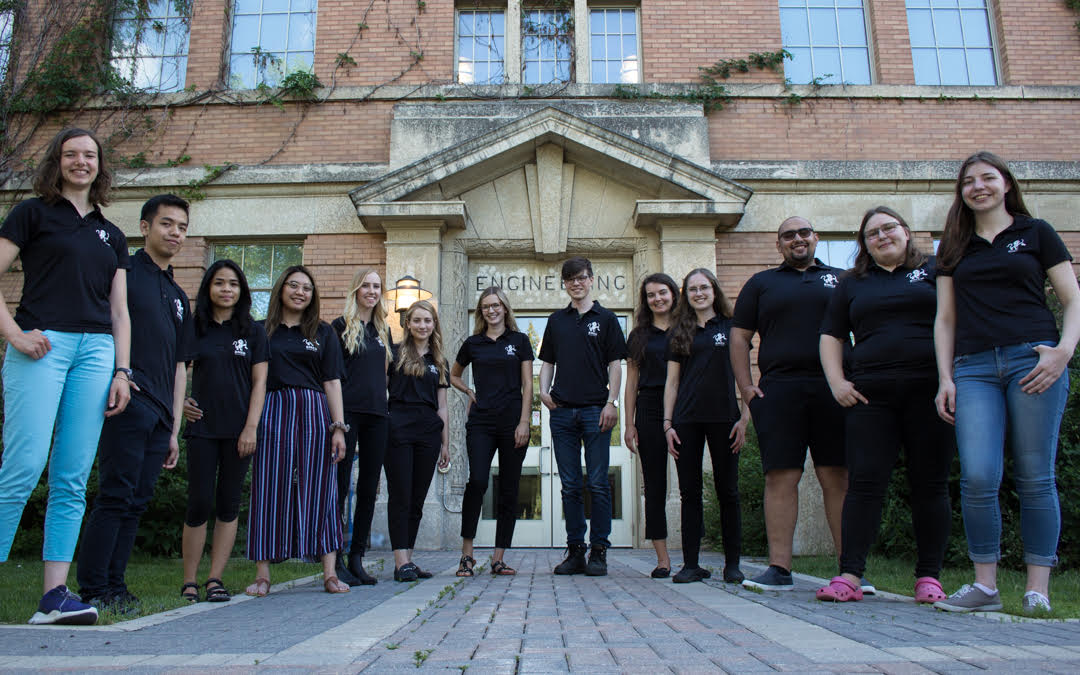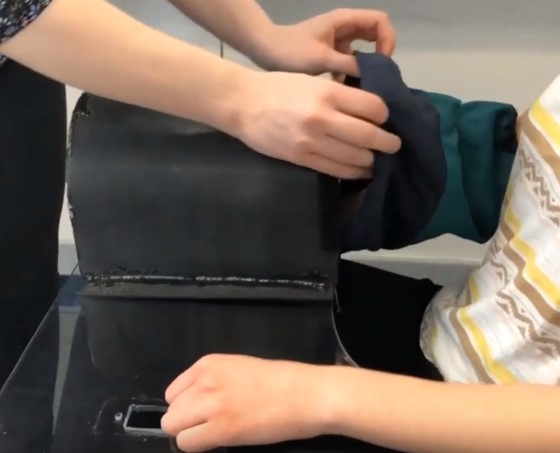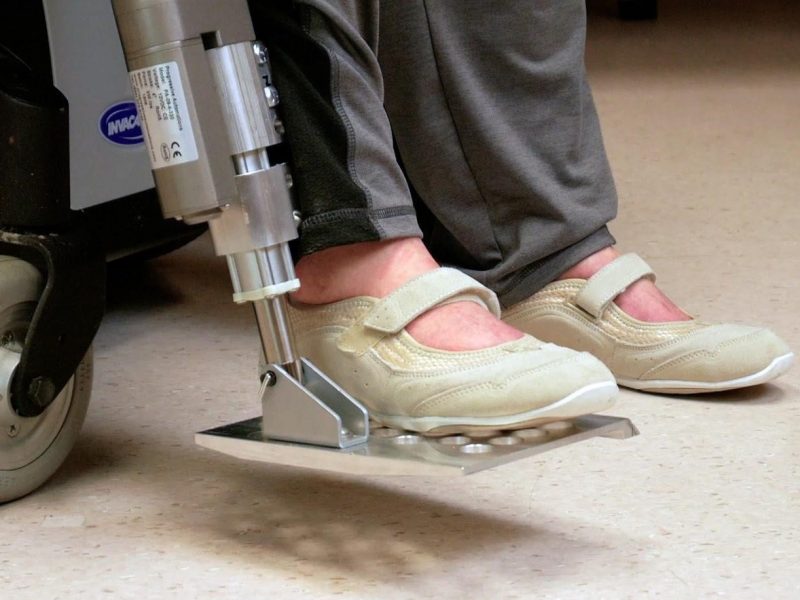
Biomedical engineering students design life-changing technology
The University of Manitoba Biomedical Engineering Design Team (BMED) brings together students with a passion for the biomedical field to foster design experience, device building, public speaking and networking opportunities.
Throughout their first year as a team, BMED organized events, tours and outreach programs to distribute knowledge about biomedical engineering. The team focused on completing autonomous design projects that aim to improve the quality of life of clients. Within these projects, students designed, prototyped and tested their devices before taking them to competitions and conferences. BMED worked on three projects: Wheelchair Transfer, Wheelchair Handwarmer, and EMG Muscle Rehabilitation.
Wheelchair Transfer Project
The Wheelchair Transfer Project involved collaboration with a client diagnosed with secondary progressive Multiple Sclerosis (MS) and an occupational therapist from the MS Clinic at the Health Sciences Centre. MS is a progressive autoimmune disease of the central nervous system characterized by demyelination, which can lead to symptoms such as impaired mobility, extreme fatigue, sensation changes, bowel and bladder issues, and cognitive impairment, among other symptoms.
The client, who lives independently in the community with the support of Home Care, lost strength in her right leg and was unable to safely and consistently lift her right foot onto the footrest of her power wheelchair. Without a safe and reliable means of transferring her independence would be compromised.
After consulting with the client and occupational therapist, an automated assistive footplate was designed and built. With the push of a button, a linear actuator raises and lowers the client’s wheelchair footplate, greatly reducing the need for the client to lift her foot against gravity to complete the transfer. The lightweight perforated aluminum footplate has a beveled edge to allow the client to easily slide her foot onto the plate when it is flush with the floor.
BMED showcased their design and received first place at the Consortium of Multiple Sclerosis Centers Design for Rehabilitation Competition, thereby winning the University of Manitoba’s first-ever Biomedical Engineering Design Competition. The competition was held in Seattle, Washington from May 28 – June 1, 2019.
Wheelchair Hand-warmer Project

Testing of the wheelchair hand-warmer proved that the device can stay within the required range with an uncertainty of around +/- 2 degrees.
Working in collaboration with the team at the Assistive Technology Department at the Health Sciences Centre, BMED designed a device for individuals with Muscular Dystrophy (MD). MD is a group of muscle diseases that lead to weakening and breakdown of skeletal muscles over time, resulting in impaired mobility and progressive weakness. With the harsh winter temperatures, especially in Manitoba, patients may experience worsening symptoms of muscle weakness and trouble sensing when temperatures are too extreme. The BMED Team was tasked with creating a device that maintains a temperature to allow for safe use of a wheelchair in extremely cold temperatures.
The team designed a custom hand-warmer device which automatically regulates the temperature inside the warmer based on the outside temperature using temperature sensors. If the outside temperature is below the set minimum temperature the device will turn on, allowing voltage to pass through to the fan and heater. The constantly automatically fluctuating heat will prevent the client from becoming too cold or overheating.
EMG Muscle Rehab Project
The EMG Muscle Rehab Project is a research-based collaboration between BMED and the Graduate Biomedical Engineering program at the University of Manitoba. The research project was initiated to support individuals who have suffered paralysis or weakness of muscles as a result of a stroke.
The rehabilitative process for stroke victims can be long and often times frustrating causing patients to become disengaged leading to poor outcomes. As such, the BMED helped develop a device to aid in engaging patients in the rehabilitation process. The BMED Team is currently designing an interactive device that allows users to interact with a computer, playing various games and activities, using their voluntary muscle activity. Their current prototype successfully measures extensor (biceps) muscles to produce musical notes using a test bench. Final goals include creating a portable enclosure for the device, and to integrate the prototype with a computer.
In 2019, BMED also presented and exhibited their projects at the Canadian Healthcare Engineering Society Manitoba Education Day, ran an EMG circuit workshop at the University of Manitoba Healthcare Leaders Conference and attended the Rehabilitation Engineering and Assistive Technology Society of North America Annual Conference.
For more information or if you are a student looking to join BMED please contact: designchair.bmed@gmail.com







